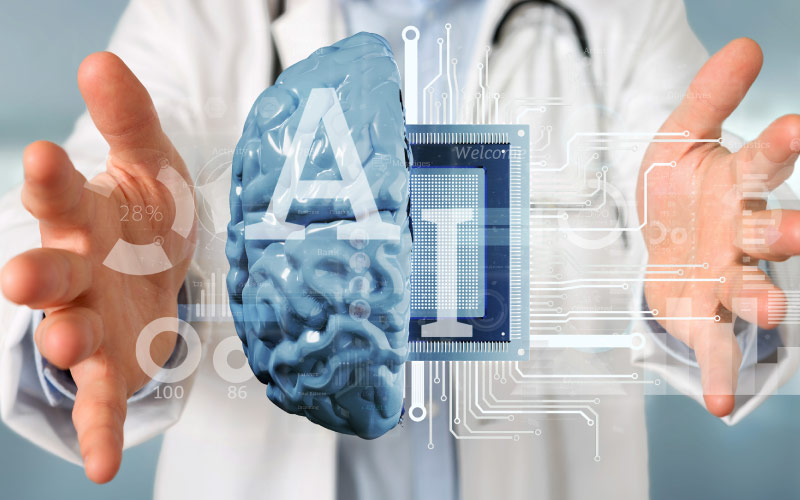Artificial Intelligence is rapidly transforming the market ecosystem of every industry and so is the healthcare sector. AI is offering unparalleled opportunities for healthcare marketers to connect with patients on a deeper level.
The report by Market Research Future states that, “Artificial Intelligence in healthcare market size will be worth USD 12.22 billion by 2030 at 51.9% CAGR. Taking these figures into consideration, let’s have a look at the five major impacts of AI on healthcare marketing. We will also discover the various ways in which AI is transforming healthcare and helping marketers to increase engagement rates.
Personalized marketing campaigns

One of the major benefits of AI in the healthcare industry is the segregation of data. AI capabilities will segregate the patients’ data according to history, preferences, and behavior. This will help healthcare marketers to plan and strategize personalized campaigns that help to gain high engagement rates and conversions.
More than 60% of healthcare marketers agree that the campaigns created using AI are successful in personalized targeting, both in B2B and B2C healthcare marketing.
Data-driven decision making
Healthcare marketers are leveraging AI to analyze and understand the huge data available. The extraction of this data is not only helping to increase operational efficiency through marketing but is also playing a major role in clinical research.
Through profound segregation of customer data according into demographics, medical history, online behavior, treatment preferences, and needs, artificial Intelligence is helping healthcare marketers with an intense groundwork of understating patients at a deeper level leading to data-driven marketing decisions.
Valuable insights from CRM Platforms

Healthcare is one such industry that gathers huge volumes of data and the majority of the marketing campaigns rely on relevant segregation of data and extracting insightful information from it. The CRM platforms ensure the efficiency of the workflow by automating data-filtration and other important tasks such as patient profile tracking, follow-up communications, campaign tracking, etc.
CRM platforms are helping healthcare marketers with centralized data that effectively outlines the patient’s needs. The valuable and simplified data is helping healthcare marketing professionals to ideate and implement tailored marketing campaigns.
Also, the AI-powered CRM platforms are efficiently assisting healthcare marketers to track and manage the potential and existing patient journey throughout the marketing funnel. CRM platforms are helping healthcare marketers with performance analysis of marketing campaigns, and measuring key metrics that in turn help in strategizing and implementation of result-oriented marketing campaigns.
IoT and improved patient engagement
Healthcare marketers are witnessing a high growth graph in terms of patient engagement rate through IoT devices equipped with AI capabilities.
The AI-enabled connected devices are encouraging the patients to participate and monitor their self-care and receive real-time constant feedback about their health. Healthcare marketers are utilizing IoT effectively to initiate interactions and empower patients with self-care routines leading to improved engagement rates.
24/7 customer support
Chatbots and virtual assistants are in use by almost all sectors but healthcare draws major benefits from them. Around-the-clock customer support in the healthcare industry is one of the crucial gaps fulfilled by AI.
Chatbots are answering the most common queries, helping patients to lead through the proper healthcare routine, and guiding patients through various stages of their healthcare journey leading to increased engagement rate and enhanced patient experience.
Bottom-line

Artificial intelligence is transforming healthcare marketing and is enabling organizations to be highly data-oriented. It is paving new opportunities to provide personalized experiences for patients. As AI continues to advance in healthcare marketing, it will unveil more potential ways for organizations to build meaningful connections with patients and drive positive health outcomes.
Also Read : The Rise of Artificial Intelligence in the Healthcare Sector
